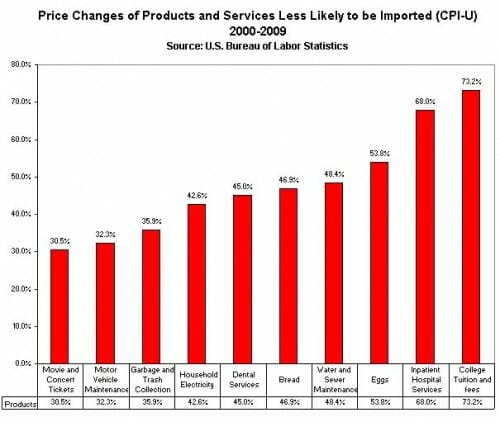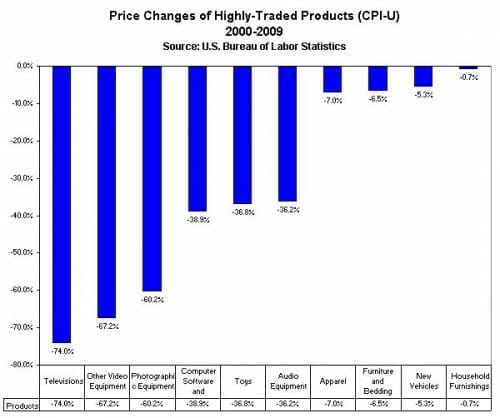On this blog, over the last couple of months, I have presented a pretty clear set of facts showing that, with the possible exception of some rural border regions beset by drug gangs, the vast majority of Arizona has experienced rapidly falling crime rates, in fact crime rates falling much faster than in the rest of the country. The crime rates of even our key border towns has remained flat.
What to make, then, of these statements by our governor.
Gov. Jan Brewer on Friday reiterated her assertion that the majority of illegal immigrants are coming to the United States for reasons other than work, saying most are committing crimes and being used as drug mules by the cartels.
Brewer's remarks are an expansion of comments she made last week during a televised debate between the four Republican gubernatorial candidates....
In the debate, Jette [a candidate running against Brewer] said that most people who cross illegally into Arizona are "just trying to feed their families." Brewer disputed that, saying, "They're coming here, and they're bringing drugs.
And they're doing drop houses, and they're extorting people and they're terrorizing the families." The governor, who has become a national media figure since signing Senate Bill 1070 into law on April 23, went further on Friday, saying that the "majority of the illegal trespassers that are coming (into) the state of Arizona are under the direction and control of organized drug cartels."
When pressed, Brewer said that even those who do come to the United States looking for work are often ensnared by the cartels.
"They are accosted, and they become subjects of the drug cartels."
Estimates are that there are 8-12 million illegal immigrants in the US (Brewer's hispano-phobic allies would put the number much higher). They are mostly all drug dealers and criminals? Really?
I try really hard not to try to guess at what motivates folks I disagree with by assuming they are driven by something dark and evil, but how else in this case can one describe opinions like this so contrary to facts as anything other than prejudice against a particular ethnic group?
Just look at the actions of our governor and folks like Joe Arpaio. If it really were the case that illegal immigrants are all criminals uninterested in legal work, then why is so much recent legislation aimed at business owners that hire illegal immigrants? Or at day labor centers? Why are all of Sheriff Joe's immigration sweeps raiding lawful businesses rather than, say, crack houses? After all, if illegal immigrants are all just drug dealers not looking for real work, why spend so much time looking for them, uh, doing real work?
Postscript: If Brewer is in fact correct, then there is a dead easy solution for the illegal immigration problem -- legalize drugs. She and I both agree that the worst criminal elements of illegal immigrants would be much less of a problem without the illegal drug trade. The only difference is that I think that segment makes up less than 1% of the population of illegal immigrants, and she thinks its everyone.
Further, to the extent that some illegal immigrants just trying to support their families are "ensnared" by drug cartels (whatever that means) it is because of their immigration status. Make them legal residents of the country, and no one has any particular leverage over them.
Note to Commenters: Many, many of you have disagreed with me vociferously on immigration. Please, I would love to see reasoned comments defending Brewer, particularly with data. In particular, please use the laws of supply and demand to explain how the majority of 8-12 million people are able to earn a living in the illegal drug trade in the southwest. To help you out, there are about 6.6 million people in Arizona. Based on national rates of 8% of over age 12 being users, about 500,000 of those are illegal drug users. One estimate is that there are 500,000 illegal immigrants in Arizona.
Update: Are she and I living in the same state?
Arizona GOP Gov. Jan Brewer claimed recently that law enforcement has been finding beheaded bodies in the desert "†but local agencies say they've never encountered such a case.
"Our law enforcement agencies have found bodies in the desert either buried or just lying out there that have been beheaded," Brewer said Sunday, suggesting that the beheadings were part of increased violence along the border.
But medical examiners from six of Arizona's counties "†four of which border Mexico "†tell the Arizona Guardian that they've never encountered an immigration-related crime in which the victim's head was cut off.


